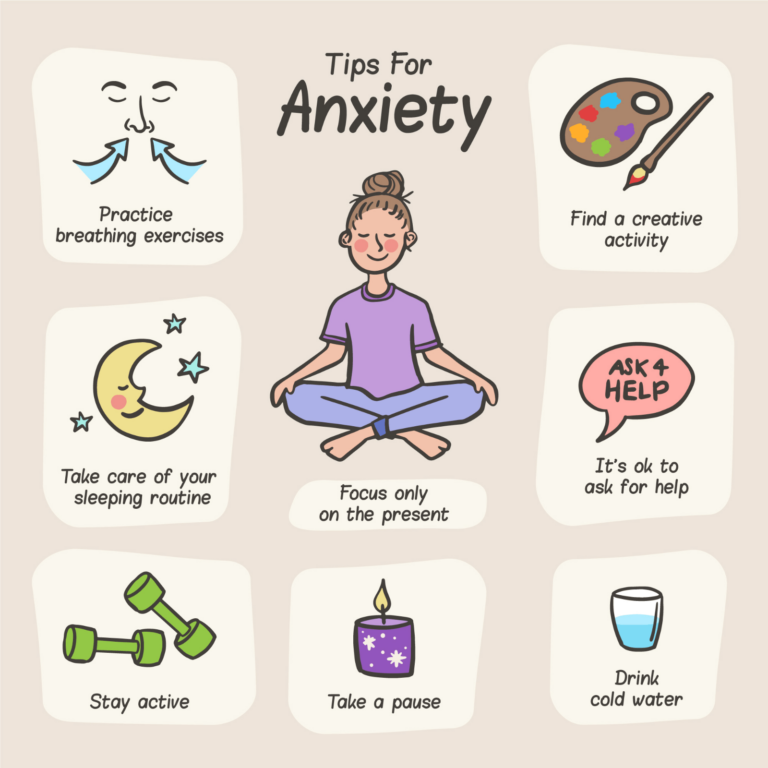How to Manage Stress for Better Health: Effective Strategies for a Calmer, Healthier Life
In today’s fast-paced world, stress has become an inevitable part of our daily lives. Whether it’s work pressures, personal responsibilities, or health concerns, stress can take a toll on both our mental and physical well-being. Chronic stress is linked to a wide range of health problems, from anxiety and depression to high blood pressure and heart disease. Managing stress effectively is not only essential for emotional balance but also crucial for maintaining good health. In this article, we’ll explore practical, science-backed strategies on how to manage stress for better health, helping you regain control and improve your quality of life.
Understand the Impact of Stress on Your Body and Mind
Before diving into stress management techniques, it’s important to understand how stress affects your body and mind. When you experience stress, your body enters a “fight or flight” response, releasing hormones like cortisol and adrenaline. While these hormones are beneficial in short bursts, chronic stress can lead to various physical and mental health issues, such as headaches, digestive problems, anxiety, and sleep disturbances. Long-term stress is also associated with a weakened immune system, making you more susceptible to illnesses. Recognizing the signs of stress and understanding its impact on your health is the first step in taking action to manage it effectively.
Practice Mindfulness and Meditation to Find Calm
Mindfulness and meditation are two powerful tools for managing stress and improving mental well-being. Mindfulness involves being fully present in the moment without judgment, which can help you break the cycle of overthinking and rumination that often accompanies stress. Meditation, on the other hand, helps activate the body’s relaxation response by calming the mind and reducing the production of stress hormones. Practices like deep breathing exercises, guided meditations, or even simple mindful moments throughout the day can significantly lower stress levels. Consistent practice has been shown to reduce anxiety, improve focus, and increase emotional resilience, all of which contribute to better health.
Exercise Regularly: A Natural Stress Reliever
Exercise is one of the most effective natural remedies for stress. Physical activity releases endorphins, the body’s natural mood enhancers, which help reduce the physical and emotional symptoms of stress. Whether it’s a brisk walk, yoga, or more intense activities like running or swimming, regular exercise helps lower cortisol levels and boosts overall well-being. Exercise also promotes better sleep and increases energy levels, both of which are crucial for managing stress. Aim for at least 30 minutes of moderate exercise most days of the week to keep stress at bay and improve both your physical and mental health.
Manage Your Time Effectively to Reduce Overwhelm
One of the main causes of stress is feeling overwhelmed by too many tasks and responsibilities. Time management plays a key role in reducing stress by helping you prioritize tasks and set realistic expectations. Start by breaking down larger tasks into smaller, manageable steps and focusing on one task at a time. Use tools like calendars, to-do lists, or productivity apps to stay organized and on track. Learn to say no when necessary and delegate tasks that aren’t urgent. By managing your time effectively, you can reduce the feeling of being overwhelmed, minimize stress, and create more space for relaxation and self-care.
Build a Strong Support System: Social Connections for Stress Relief
Having a strong support system is essential for managing stress effectively. Whether it’s family, friends, or coworkers, social support provides an outlet for expressing feelings and sharing burdens. Talking about your stressors with someone you trust can offer emotional relief and help you gain perspective. Additionally, spending time with loved ones, engaging in social activities, and being part of a supportive community can provide a sense of connection and belonging. Research shows that positive social interactions can lower stress levels, reduce feelings of isolation, and improve overall mental health. Don’t hesitate to reach out and lean on your support system when you’re feeling stressed.
FAQs
- How does stress affect my physical health? Chronic stress can lead to a range of health problems, including high blood pressure, heart disease, digestive issues, headaches, and a weakened immune system.
- Can mindfulness really reduce stress? Yes, mindfulness practices like meditation can help reduce stress by calming the mind, lowering cortisol levels, and improving emotional regulation.
- What type of exercise is best for stress relief? Any form of exercise, from walking and yoga to running or swimming, can help alleviate stress by releasing endorphins and reducing cortisol levels.
- How can I manage my time to reduce stress? Effective time management involves prioritizing tasks, breaking them into smaller steps, and avoiding overcommitment. Tools like to-do lists and scheduling apps can help.
- How important is social support in managing stress? Social support plays a crucial role in stress management by providing emotional relief, connection, and perspective, which help reduce stress and improve mental health.

